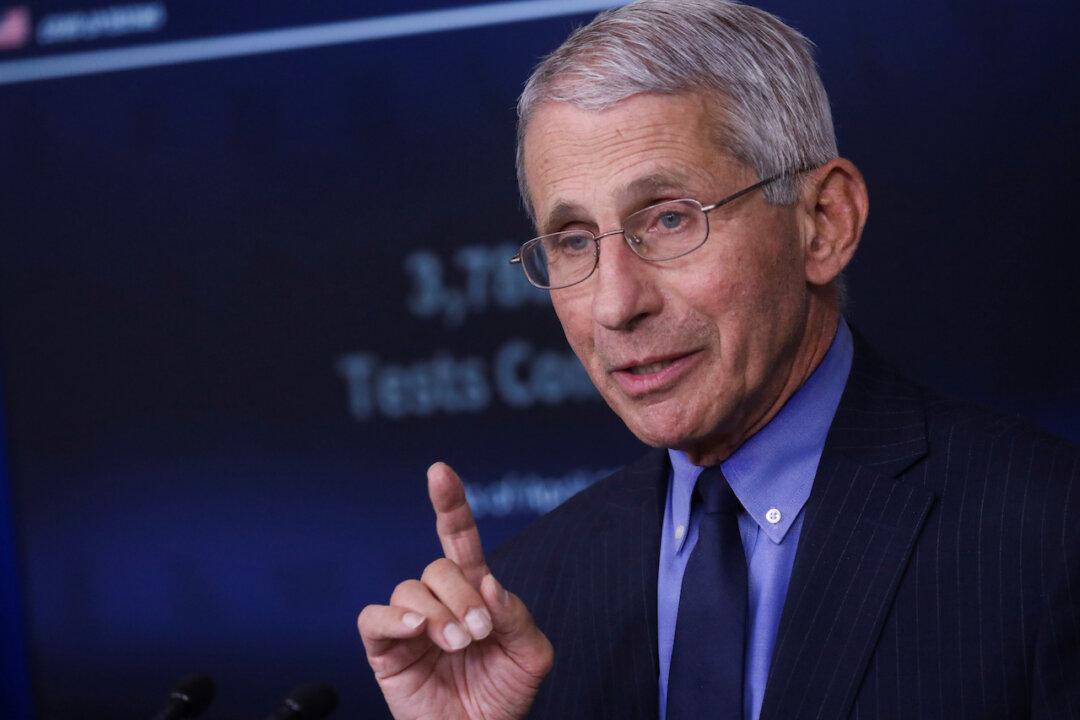Dr. Anthony Fauci said on Friday that it is “risky” to attend a protest and advised that people who attend them wear masks and frequently wash their hands.
“It’s a danger to the people who are trying to control the demonstration, and it’s a danger to the people who are demonstrating. So at the end of the day, it is a risky procedure,” Fauci, the head of the National Institute for Allergy and Infectious Diseases, said on ABC News’s “Powerhouse Politics” podcast, referring to the recent protests over the death of George Floyd.




